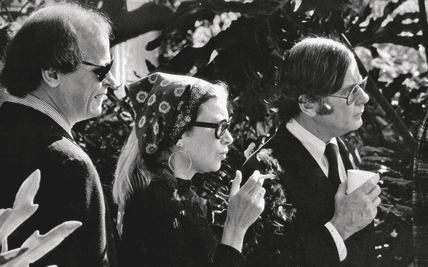The Ninth Spot on “The 50 Best TV Shows of 2023” Goes to “The Sixth Commandment”.

O
Occasionally, a play resonates so deeply that it stays with you. It becomes a part of you, frame by intense frame. The Sixth Commandment, written by Sarah Phelps and directed by Saul Dibb, was the most emotionally-charged example of the year, and perhaps even the decade. In four agonizing and almost unbearable episodes, it shattered the typical portrayal of true crime as voyeuristic, insensitive, and morally questionable. Instead, The Sixth Commandment brought attention to the victims, although even using that term feels like an unfair oversimplification. It provided a level of respect rarely given, both on screen and in real life, to those whose lives are devastated by crime.
The main individuals involved were Peter Farquhar (played by Timothy Spall), a retired teacher from Stowe school, and his neighbor Ann Moore-Martin (played by Anne Reid), a former headteacher. In 2014 and 2017, they were both befriended by a young churchwarden named Ben Field (played by Éanna Hardwicke), who gradually became a part of their lives. He would read bible verses with them, help them in the garden, cook for them, and eventually moved in with them. At this point, he confessed his love for them. However, after they changed their wills to include him, Ben’s true intentions were revealed as he began gaslighting, humiliating, mentally torturing, and poisoning them. Tragically, Peter was murdered and Ann was the target of an attempted murder by Ben. Following an investigation by the Thames Valley police and a criminal trial in 2019, Field was given a life sentence.
The story had two distinct parts – a personal exploration of characters and a police investigation – that came together seamlessly. The first two episodes focused on Peter, then Ann. Actor Spall delivered a career-defining performance as Peter, capturing his vulnerability and tenderness perfectly. It was evident in the way he walked, the way he tended to a rose or washed a cup in the sink. He portrayed Peter with a strong sense of morality and meticulousness, along with a deep longing, self-disgust, and shame. This was a man who had spent his life trying to reconcile his homosexuality with his Anglican faith, a struggle that was portrayed by Spall and writer Phelps, who was at the top of her game, as not futile but central to his identity. “It’s not about pornography; that’s not what I want,” he confided in a friend about his habit of looking at pictures of men in shorts. “Even my deviance is pathetic.” On the night he secretly proposed to his lover Ben, he revealed that he didn’t want sex, only to hold and be held. It was truly heart-wrenching.
Ann, portrayed with equal beauty by Reid, possessed qualities of love and devotion, as well as a strong Catholic faith, according to her niece Ann-Marie. However, their goodness was never glorified, but rather made them susceptible to Ben’s deceitful words. Their vulnerability did not stem from gullibility, weakness, or isolation – although, like many older individuals in our society, they did experience loneliness – but rather from their belief in God, humanity, and love. This is what made The Sixth Commandment difficult to watch and why we must commemorate their spirits.
The Sixth Commandment, set in the quiet town of Maids Moreton, Buckinghamshire, was beautifully directed by Dibb, who has a keen understanding of English culture, like great writers do, and can capture its essence through small details like the fading summer light or the sound of a boiling kettle. I am eager to see what he and Phelps will create next. Upon rewatching The Sixth Commandment (which was even more disturbing the second time), I noticed the frequent use of close-up shots of hands. Ann gently caressing Ben’s arms as he reads John Donne to her in bed. Peter’s hand gripping the wall in a state of hallucinogenic fear. Peter’s sister-in-law holding the hands of Ann’s traumatized niece in the final scene and reassuring her that “you stopped him.”
Ignore the promotion for the newsletter.
after newsletter promotion
The Sixth Commandment also pertained to those affected by it: the broken families, the retired detective brought back for one final case, the junior officer who slept in the office to go through Peter’s diaries, and the barristers joking on the first day of the trial. It also addressed how we live and our treatment of the elderly, as well as the bravery love requires. However, the focus was not on the perpetrators. Ben’s motives, aside from his god complex, sadism, and sociopathy, were not explored, nor was his background revealed. The same goes for his accomplice, magician Martyn from Cornwall. Some viewers may have found this unsatisfying. Yet, The Sixth Commandment, which was thoroughly researched and dramatized with the full consent of both families, chose to show respect by not delving into Ben and Martyn’s story. I deeply admire this decision. It is a prime example of what true crime can achieve, and I will always remember it.
Source: theguardian.com



